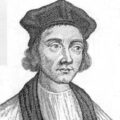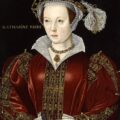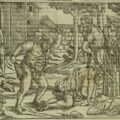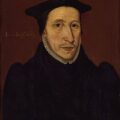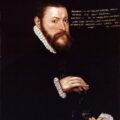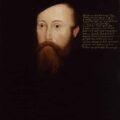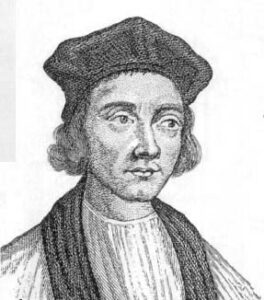
Cuthbert Tunstall was born in 1474 in Hackforth, Yorskshire. He was the illegitimate son of Thomas Tunstall of Thurland Castle, Lancashire. He was educated at Oxford and Cambridge, and then spent 6 years at the University of Padua in Italy. He studied mathematics, law and theology, and he was awarded a doctorate in law.
Cuthbert Tunstall’s Career
Cuthbert Tunstall was not just a man of the church, he was also a diplomat and here is a list of offices he held, jobs he undertook and events he was involved in:-
The Reign of Henry VIII
- 1511 – Chancellor to William Warham, the Archbishop of Canterbury
- 1511 – Rector of Harrow on the Hill
- 1514 – Canon of Lincoln
- 1515 – Archdeacon of Chester
- 1515 – Began to undertake diplomatic business for Henry VIII and Cardinal Thomas Wolsey
- 1515 – Visited Brussels with Sir Thomas More, met Erasmus
- 1516 – Master of the Rolls
- 1518 – Delivered the Latin oration, “In Praise of Matrimony”, at the betrothal of Princess Mary and the Dauphin
- 1519 – Visit to Cologne
- March 1519 – Publication of Erasmus’ Greek Testament with Latin translation and notes – Tunstall helped Erasmus prepare this.
- 1520 – Visit to Worms
- 1521 – Dean of Salisbury
- 1522 – Published a treatise on arithmetic, “De arte supputandi“, which he dedicated to Thomas More
- 1522 – Bishop of London
- 1523 – Lord Keeper of the Privy Seal
- 1525 – In charge of negotiating with Charles V after the Battle of Pavia
- 1529 – Involved in arranging the Peace of Cambrai
- 1530 – Bishop of Durham
- 1530s – Acted as one of Catherine of Aragon’s counsel at the time when Henry VIII was trying to get the marriage annulled
- 1537 – President of the Council of the North
- 1539 – Involved in discussing the Bill of Six Articles
The Reign of Edward VI
- 1549 – Voted against the first Act of Uniformity
- May 1551 – Summoned to London and confined to house arrest for his opposition to the religious policy of Edward VI’s government
- End of 1551 – Imprisoned in the Tower of London. Wrote his treatise on the Eucharist
- October 1552 – Tried by commission and deprived of his bishopric
- March 1553 – Dissolution of Tunstall’s bishopric
The Reign of Mary I
- 1553 – Released from prison
- 1554 – publication in Paris of Tunstall’s treatise on the Eucharist
- April 1554 – Bishopric re-established
The Reign of Elizabeth I
- 1559 – Refused to take the Oath of Supremacy
- 1559 – Refused to participate in the consecration of Matthew Parker as Archbishop of Canterbury
- September 1559 – Arrested, deprived of his bishopric and imprisoned in Lambeth Palace
- 18th November 1559 – Died in prison, aged 85
Interesting Facts about Cuthbert Tunstall
- He was Bishop of Durham in the reigns of four Tudor monarchs.
- Although he was a staunch Catholic and acted as an adviser for Catherine of Aragon during the time Henry VIII was seeking an annulment, he survived by being pragmatic and by obeying the King and accepting Henry VIII as head of the church.
- He was an executor of Sir Thomas Parr’s will and advised his widow, Maude, in the bringing up of her children – Thomas Parr was the father of Catherine Parr, sixth wife of Henry VIII.
- Tunstall was the chief executor of Maude Parr’s will and she left him a ruby ring – Maude was Catherine Parr’s mother.
- He shared a grandmother (Alice Tunstall) with Thomas Parr.
- He was a humanist and was close to Thomas More, John Colet, William Grocyn, Thomas Linacre and Erasmus.
- Thomas More wrote of Tunstall in his introduction to “Utopia”, saying “his virtue and learning be greater and of more excellency than I am able to praise them”.
- He managed to distance himself from the rebels in the Pilgrimage of Grace by fleeing to his castle in Norham-on-Tweed.
It is sad that this scholar who had much to do with Catherine Parr’s upbringing, and who lived through the reigns of Henry VII, Henry VIII, Edward VI and Mary I, died in prison at the beginning of Catherine’s step-daughter’s reign. Two of Henry VIII’s children had imprisoned him and one had released him, how strange!
